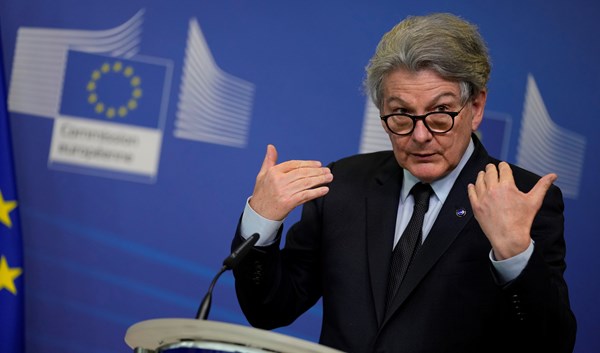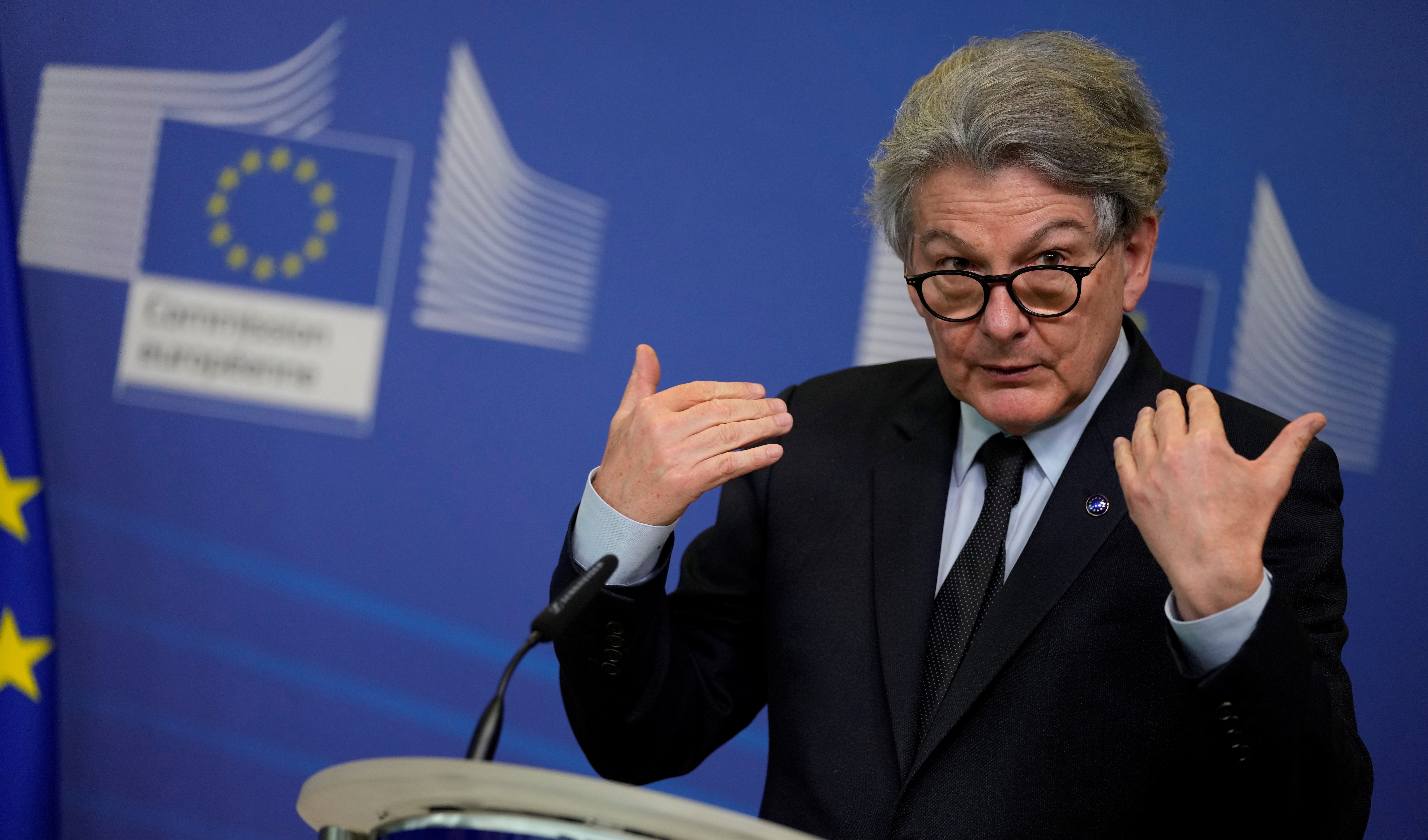
The Commissioner for Internal Market of the European Union Thierry Breton says ramping-up military production is a necessity “to face the realities of a high-intensity conflict.”
-

European Commissioner for Internal Market Thierry Breton speaks during a signature ceremony regarding the Chips Act at EU headquarters in Brussels, on February 8, 2022 (AP).
A shift to a wartime economy model in the EU has become imminent according to the Commissioner for Internal Market of the European Union Thierry Breton, who argued that the European defense industry must shift “to a wartime economy model to cater for our defense production needs.”
Breton explained that with the support of EU foreign policy chief Josep Borrell, the two were “determined to support the production ramp-up of the European defense industry to face the realities of a high-intensity conflict — starting with the question of ammunition.”
According to Foreign Policy, Brenton and Borell have been working “on a plan to use €500mn of EU money to expand arms production by financing factory expansion, eliminating supply bottlenecks and placing big orders to stimulate investment.”
It was also noted that several EU members remain skeptical of Brenton’s suggestions. One of the primary questions asked by the skeptics is “How are we going to pay for this?”
War in Ukraine cost Germany $106.7bln in 2022
The President of the German Institute for Economic Research (DIW Berlin) Marcel Fratzscher said earlier in February that since the start of the war in Ukraine, Germany has lost over $106.7 billion.
In an interview, Fratzscher told the Rheinische Post that “the Ukraine war and the associated explosion in energy prices cost Germany almost 2.5 percent, or 100 billion euros in economic output in 2022,” adding that costs will continue to accumulate in the coming years.
Germany, according to Fratzscher, has been more severely impacted by the economic crisis because it is “extremely dependent on exports and global supply chains.”
Berlin also has a significant share of an energy-intensive industry that depends on increasing energy costs.
Read more: EU to train 30,000 Ukrainian troops, doubling former pledge






